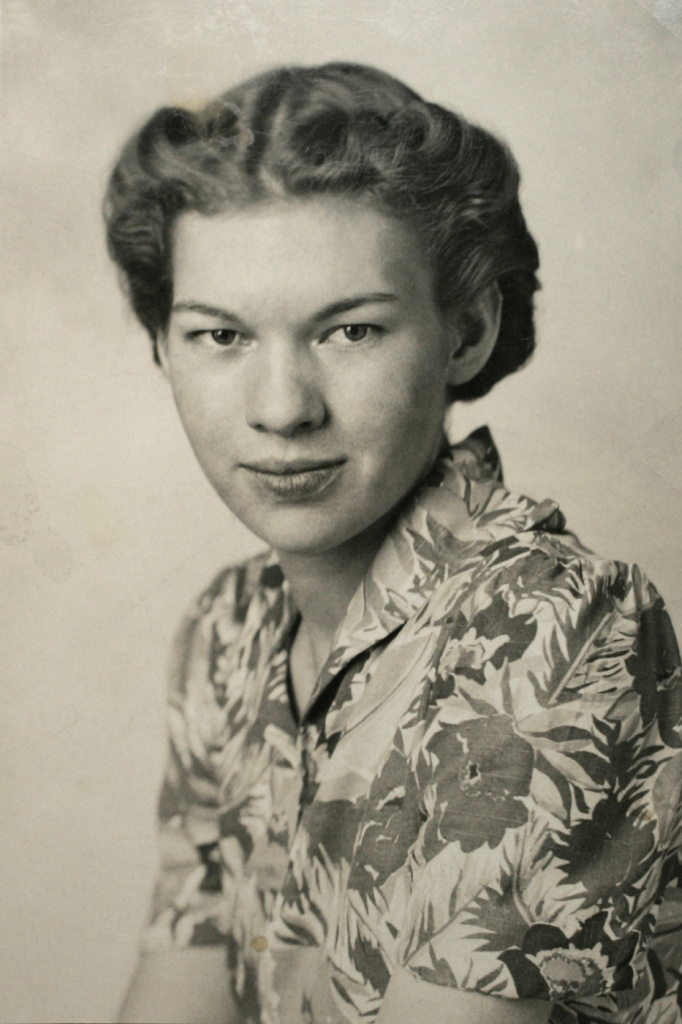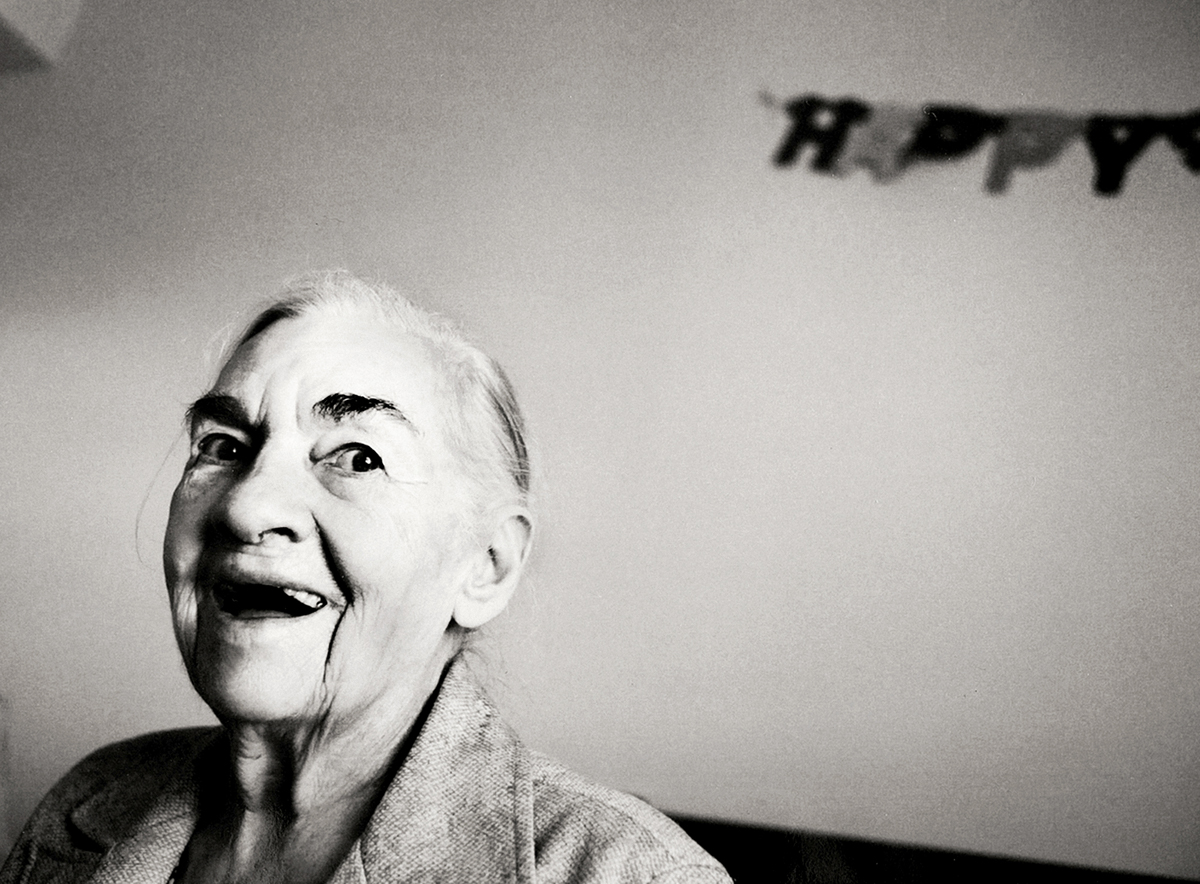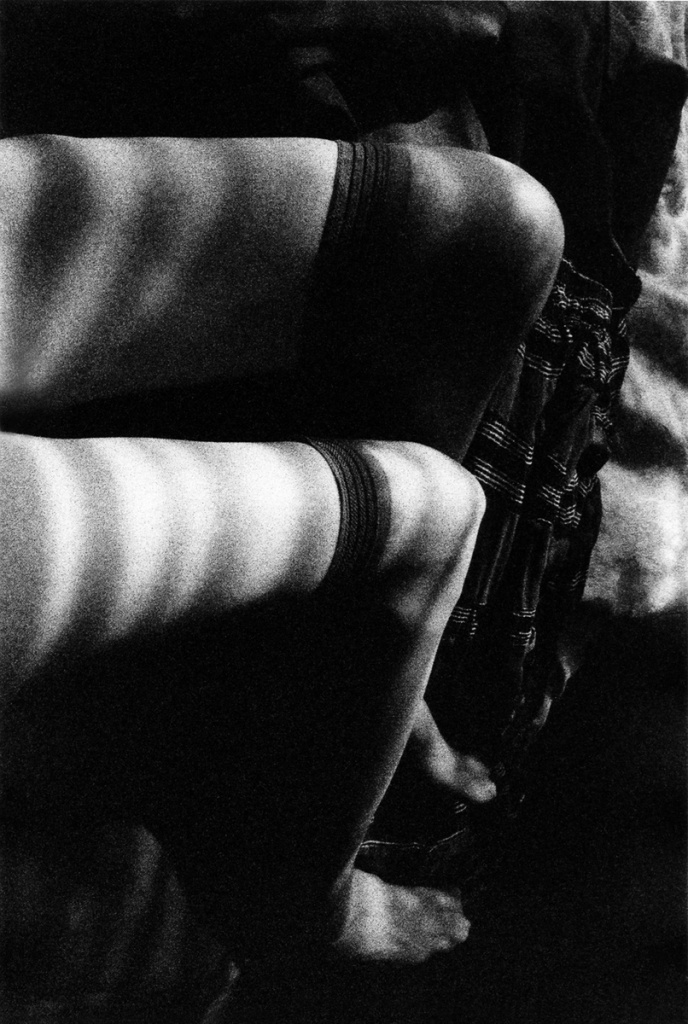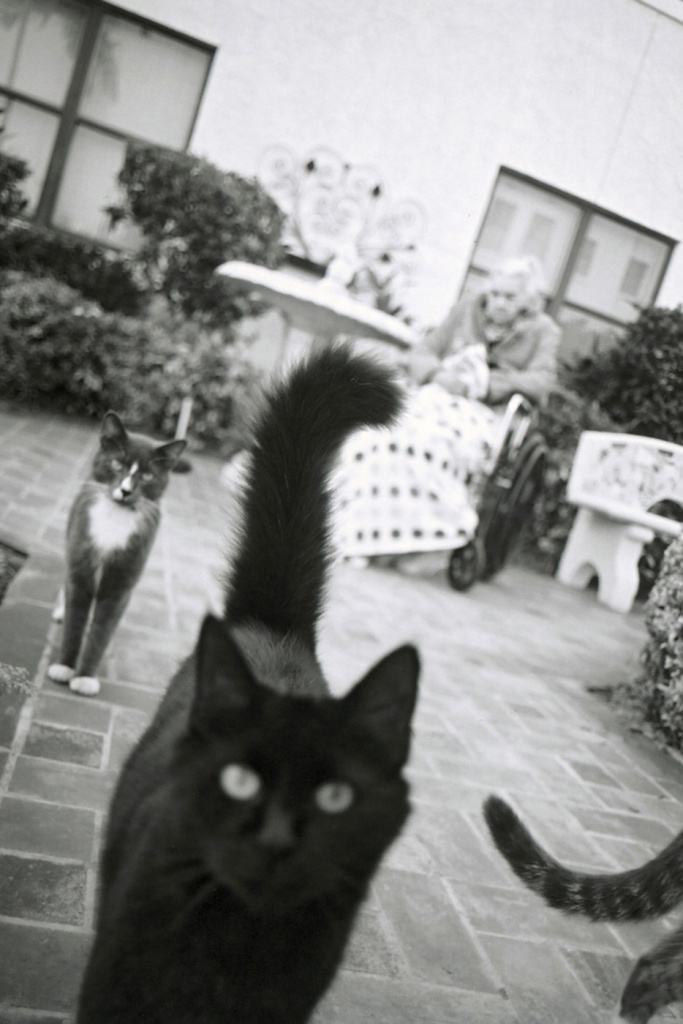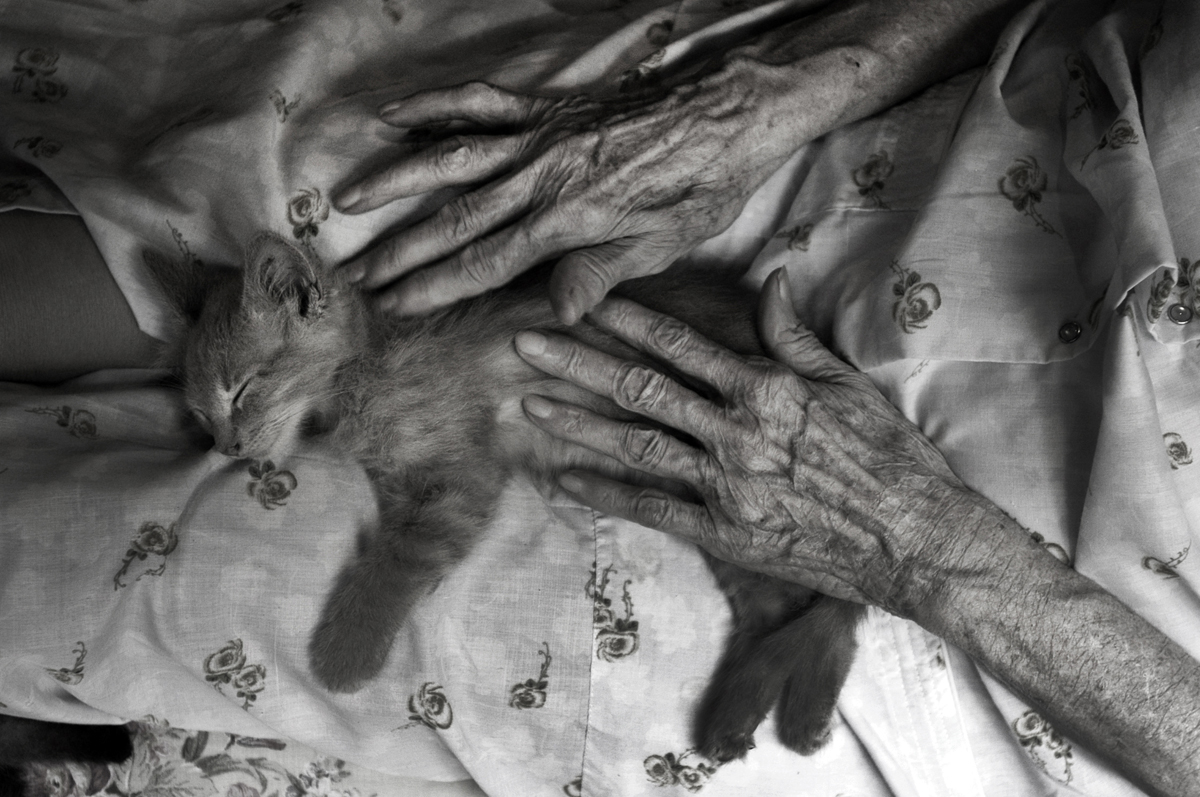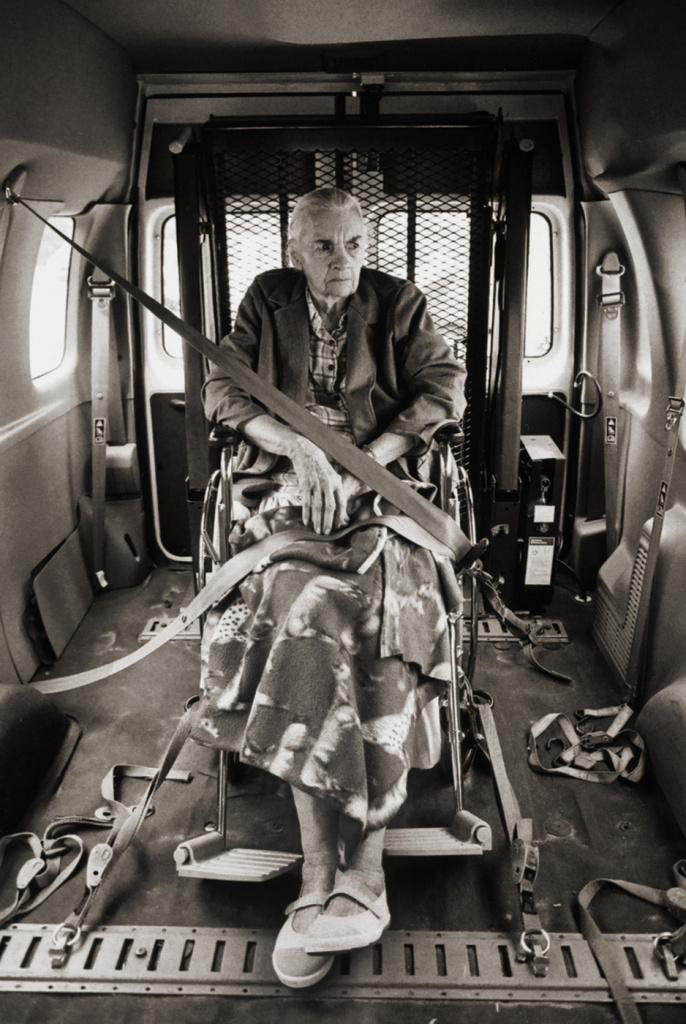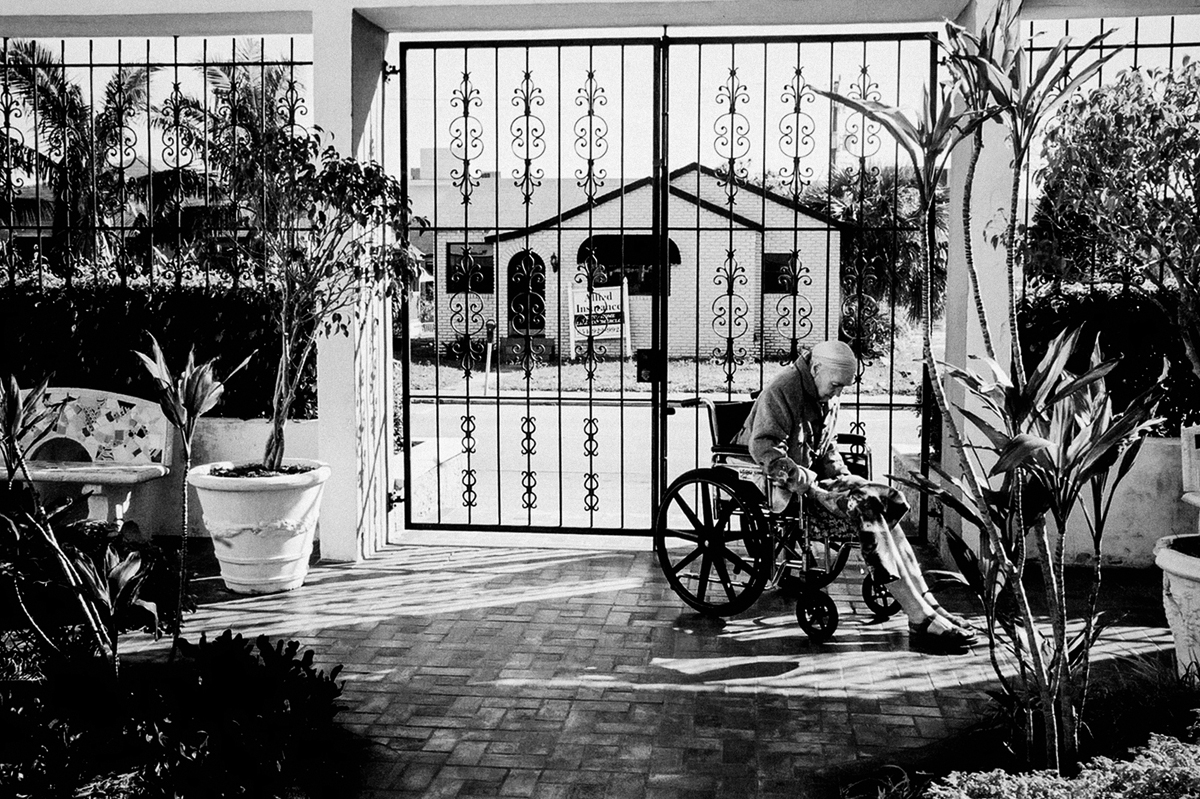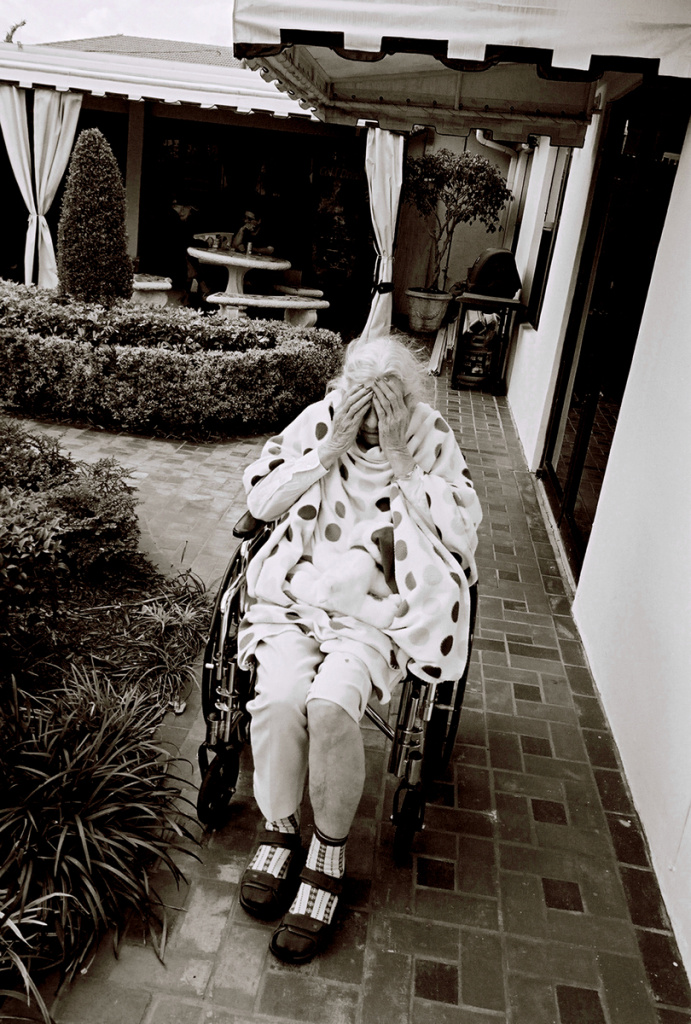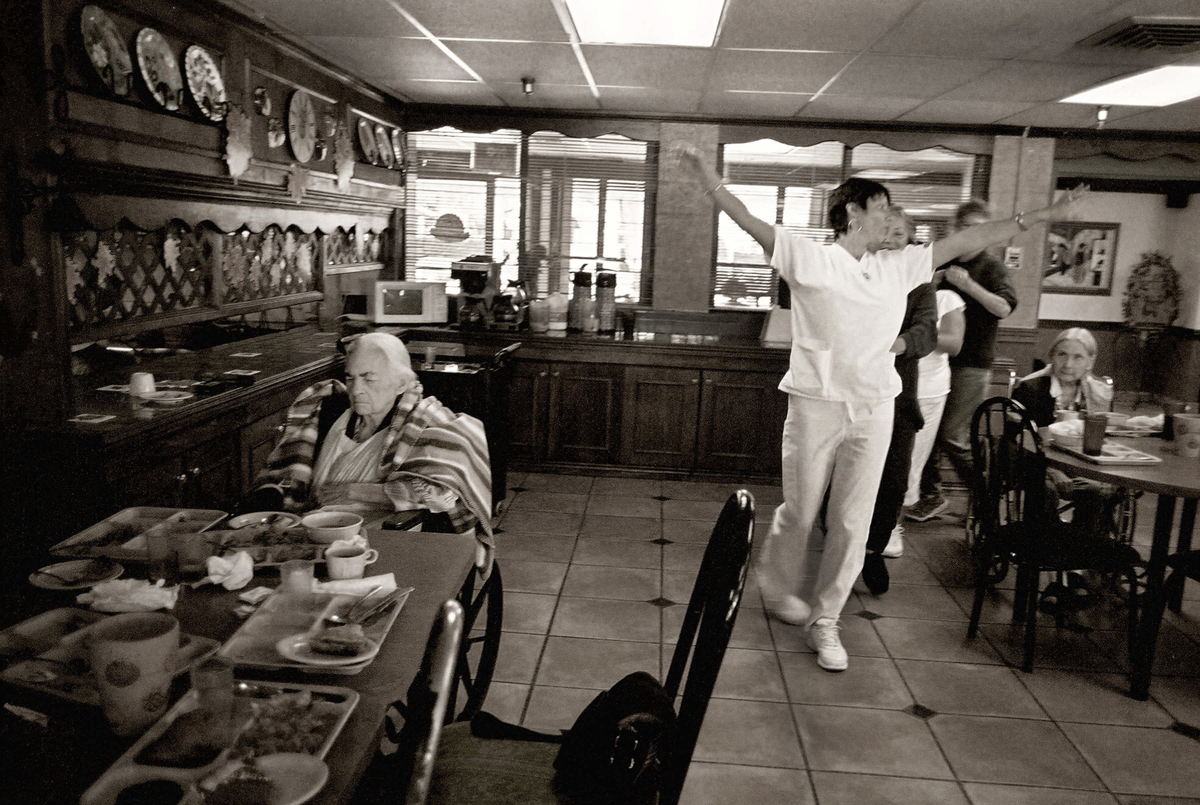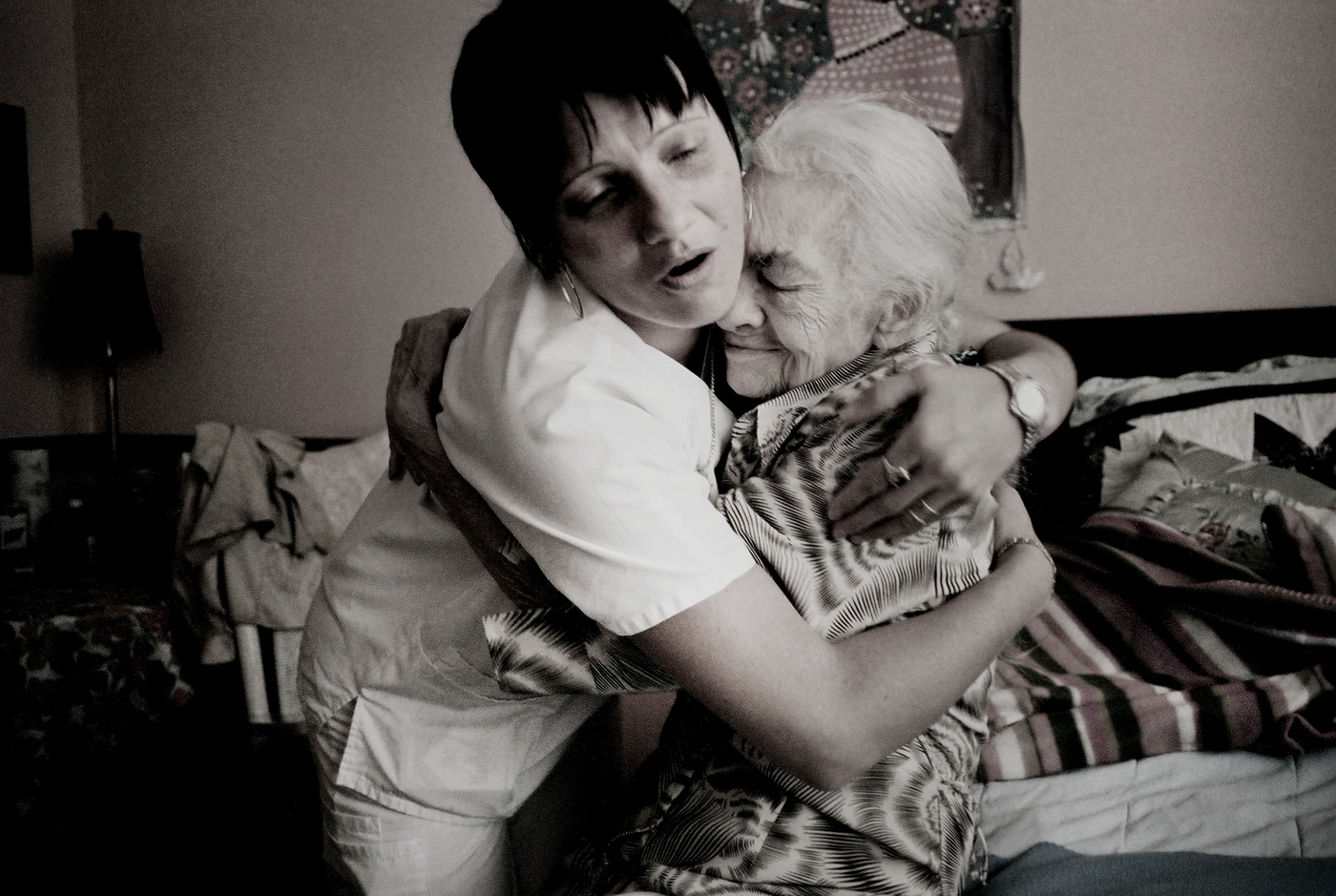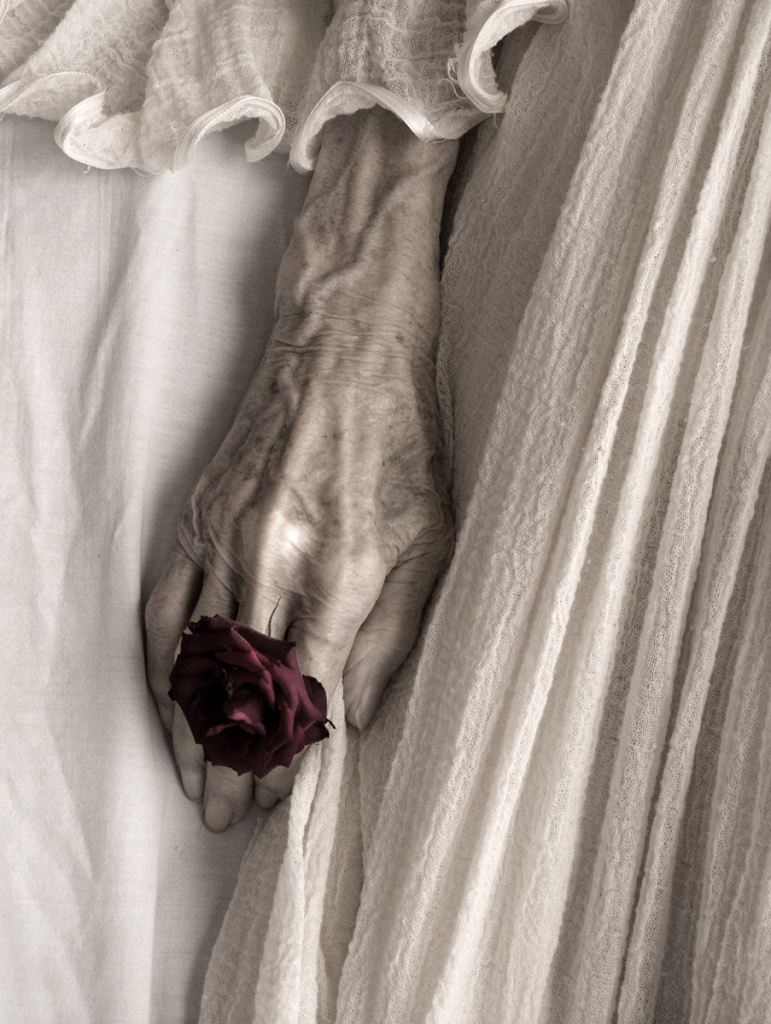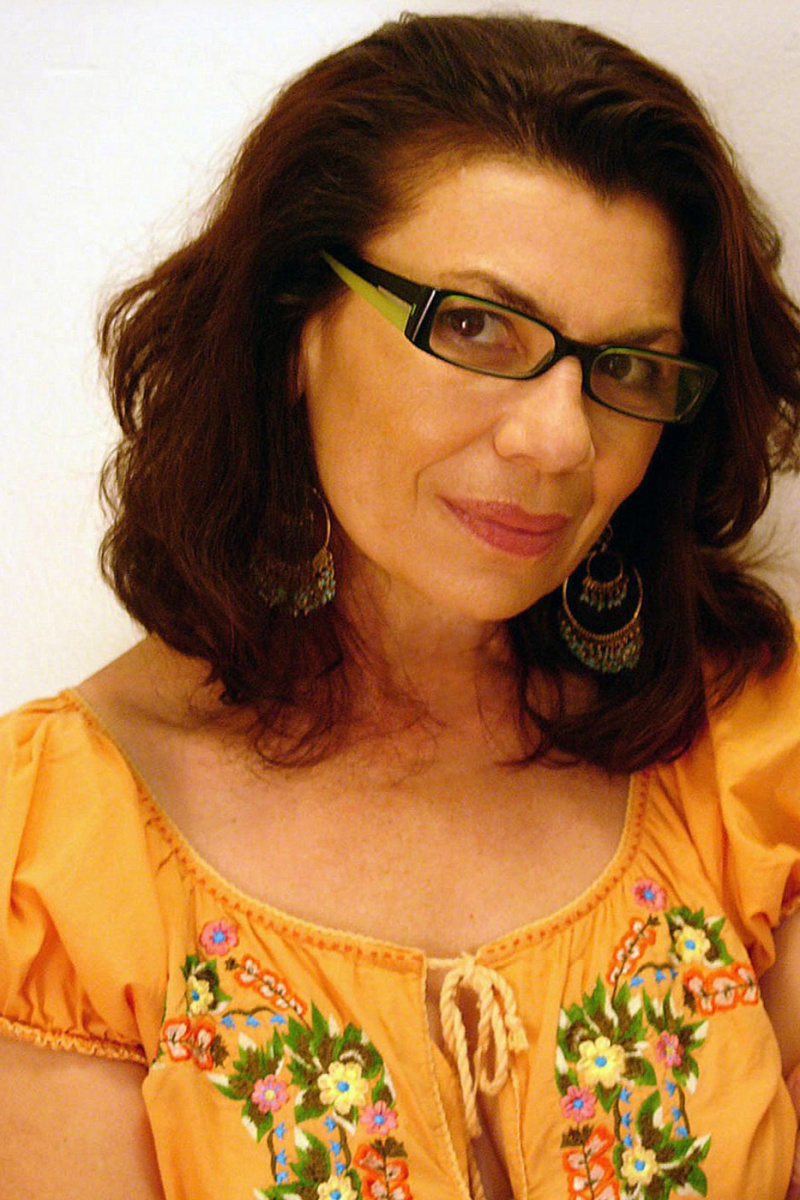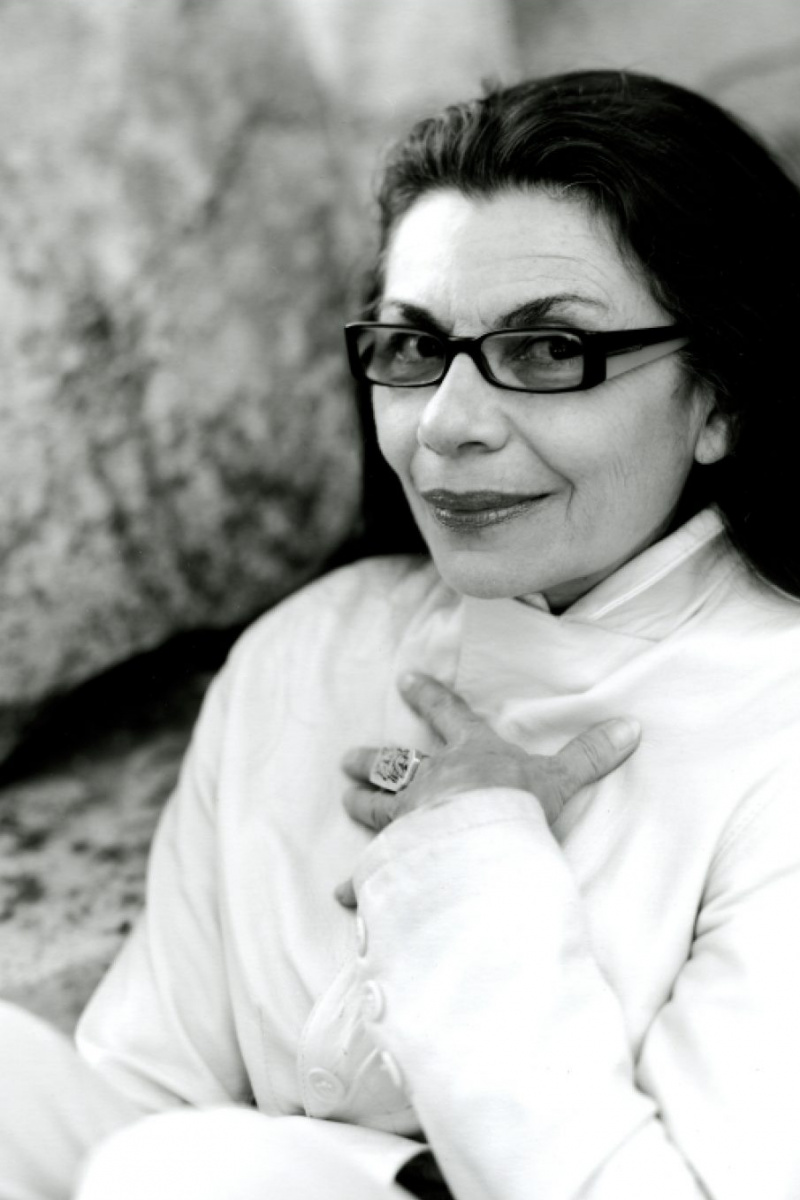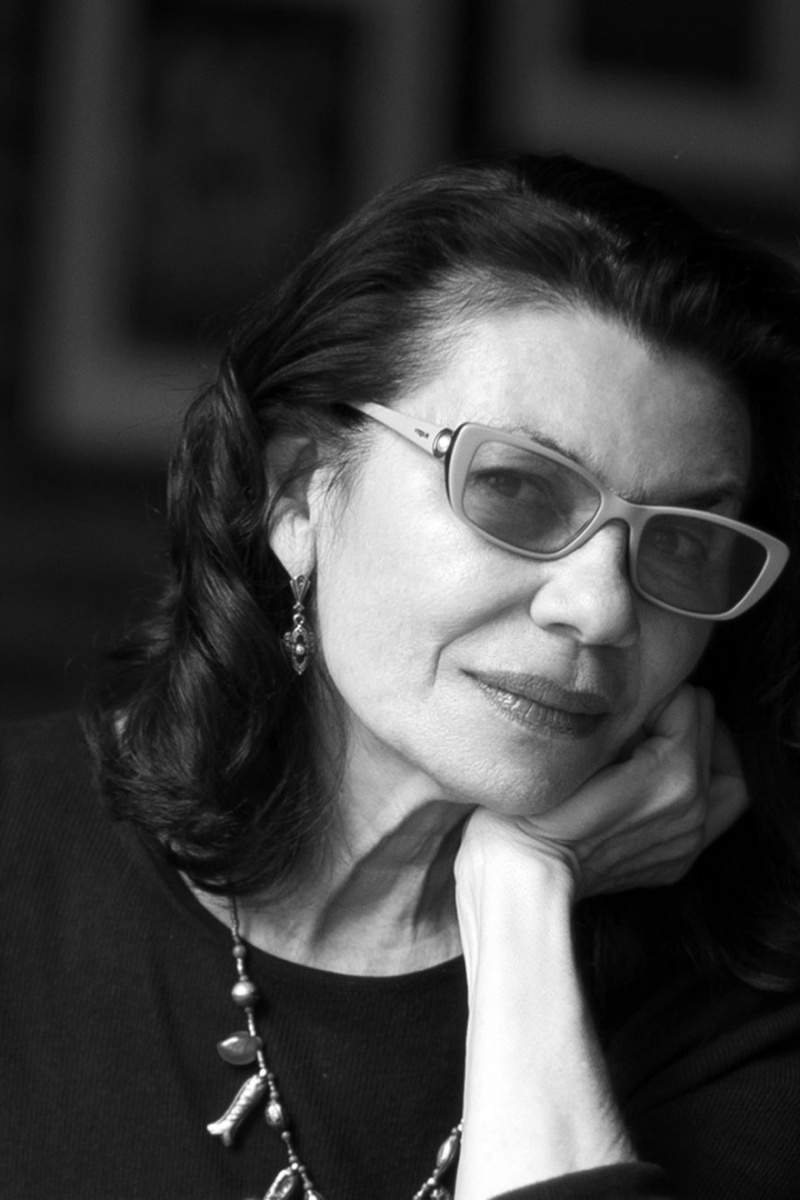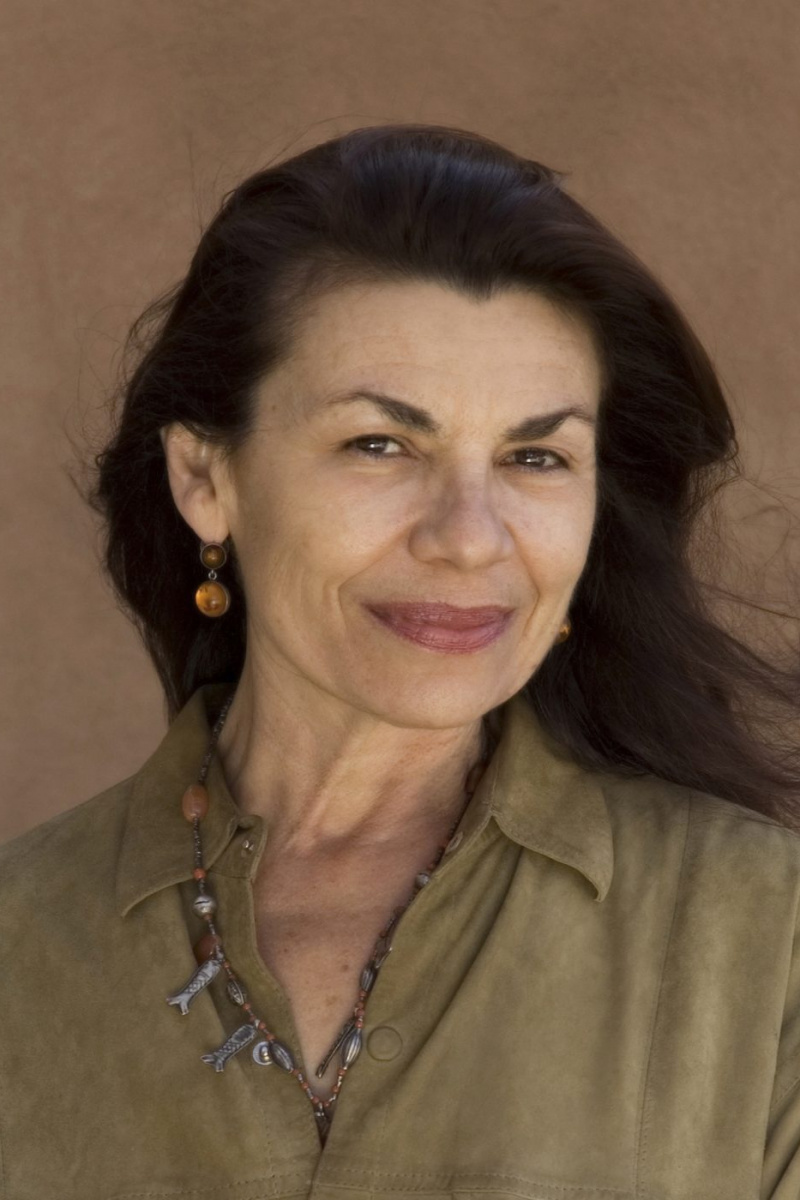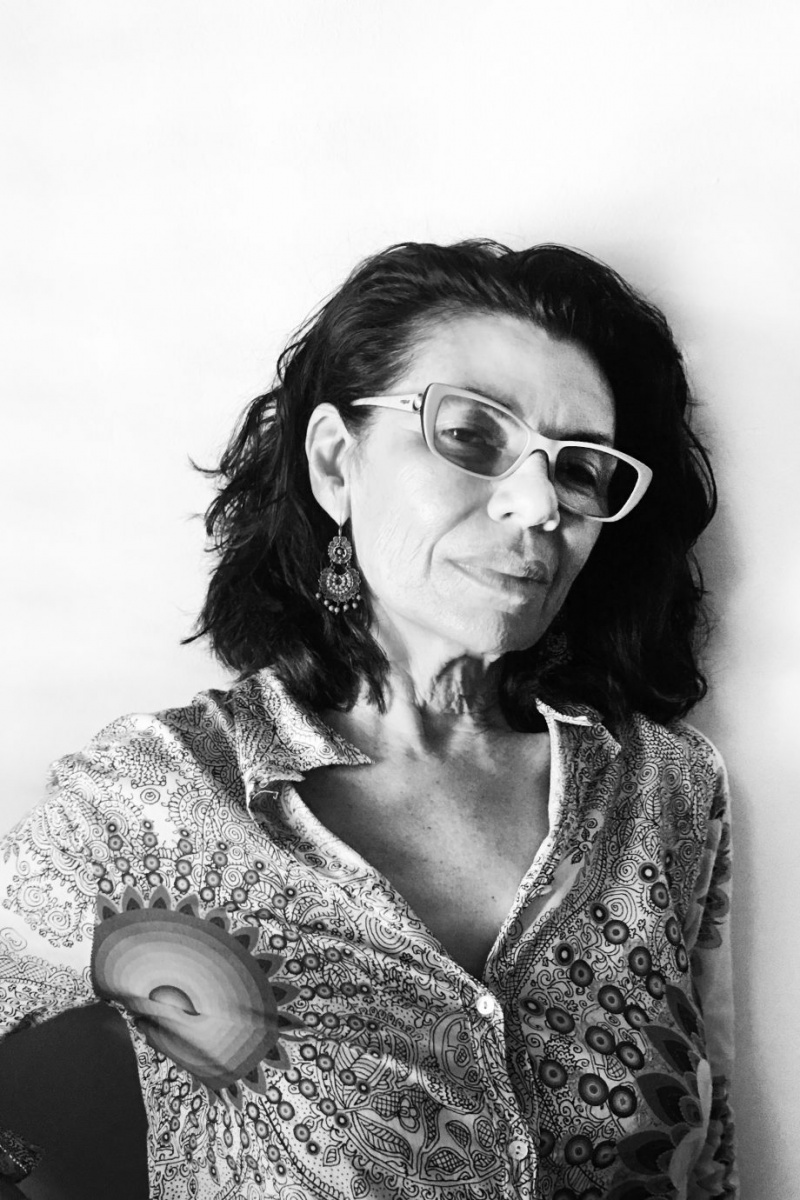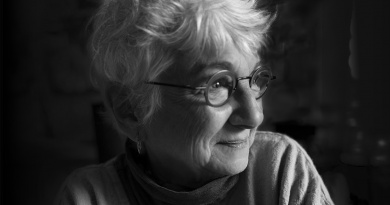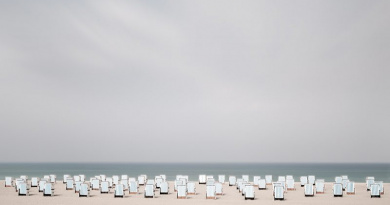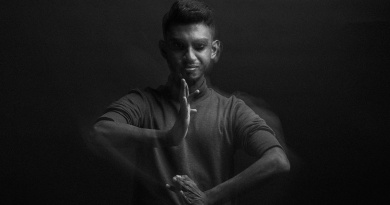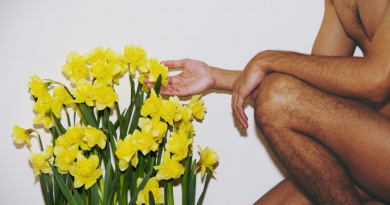Maggie Steber’s images speak to the pain of loss:
Maggie Steber was an only child. Madje Steber was a single parent. All they had was each other, an incomplete family, and it wasn't easy. Madje divorced when Maggie was only six months old. Strong and independent, Madje raised her daughter in Austin, Texas. Madje grew up in the small Texas town of Electra, near the Oklahoma border. She had a keen awareness of what others might be thinking of a young single mother at a time when that was often viewed as a scarlet letter. Their tiny house had strict rules and a formality that rubbed Maggie the wrong way, especially during her teenage years. Their relationship was strained with arguments and threats to move out. At the age of twenty-one, Maggie finally did. (Thanh Tung)
"While I went to NYC to seek my fortune, I visited Madje often and as she began to lose her memory but refuse to move to Miami where I lived, I flew to Austin for one week every month for 4 years to try to take care of her and keep her in her house. - I went well out of my way to serve her needs until she simply could not longer be safe in her home."
That fortune was as an internationally acclaimed photojournalist. She covered everything from fashion to war and completed stories in 62 different countries. She worked routinely for National Geographic, was the Director of Photography for the Miami Herald and taught at various universities and workshops. As the years passed and Madje grew older, her memory began to fade. Maggie tried to help, but her busy career kept her away from Texas. She was only was able to visit a few times a year. To this day, Maggie wonders if she did enough for her aging mother. Eventually, it became apparent, Madje had dementia. The disease proved relentless and Madje could not live alone anymore. Maggie was faced with an issue that more and more Americans must deal with as the massive baby-boomer population grows older. Maggie moved her mother to Miami to care for her. "This is my last chance to do it right," Maggie says.
Over the next few years, Maggie turned her professional eye on her own life, documenting Madje's life in an assisted living facility. The images speak to the pain of loss, the complexities of a mother-daughter relationship and the fragility of life. They reveal beauty in a liberation from the roles Maggie and Madje had learned to play as mother and daughter. They speak to both the harsh and humorous realities of life with a diminished parent and contain lessons for all of us as we face these issues in our own lives.
"This body of work is the most important one I have ever done," says Maggie, "and will ever do. It's Madje's story, but really and truly, it's my story."
After a rain
Madje goes outside and stops at a puddle to stare for a long time. The puddle only had a few palm trees reflected at the sides and the rest was empty. It made me think her memory must be like this. In many ways because of dementia, she is part of that reflection, not quite here in the real world, not quite there in her own reflections.
Portrait of Madje (sitting on a stool)
Madje sits for a portrait in the home of her daughter, Maggie Steber, during a weekend visit.
Madje Has Dementia
Everyone says the tie that binds us is love or blood but I think it is memory.
For nine years I cared for my mother Madje as she set sail on the melancholic voyage of memory loss. A scientist who did research and wrote important papers, she was strong-willed, simultaneously logical and eccentric, tough but generous, practical, wasted nothing and counted every dollar. She raised me after divorcing my father when I was a baby. The accumulated events of her life, some of which I could only guess at, created a brilliant but complicated woman who became an eccentric recluse with age. After struggling to keep her in her home in Texas, I moved her to Miami.
We had one blissful year before she began to wander and I had to move her. I looked at 50 places. One was a lock-down facility that had been recommended. After the tour, I ran to my car and wept. Finally I found an odd but welcoming place where a simple code could get you in and out the door. The caregivers were wild Cuban and Romanian women of great heart. Becoming like sisters to me and daughters to my mother, these women spoiled Madje rotten and surrounded us with love as my mother suffered episodes of anger, bliss, wandering, biting, scratching, kicking and screaming. She suffered physical and mental decline after two falls and subsequent hip surgeries. We always fell into the safety net of love from these caregivers.
I photographed my mother to save myself from the heartbreak of being forgotten. I showed her the photographs. To her, they were like postcards from distant lands. Recollection was thrown daily into the sea we crossed on this last voyage. It sounds cold, loveless in fact, but in some ways, dementia gave me the mother I always wanted. Madje changed as her brain withered and became more reasonable, childlike and kinder, even sexy. While she struggled with losing the core of her being, the worry fell from her face. She glowed. She was beautiful.
For the first time, I was able to look past my mother and see Madje, the real Madje as a person separate from me. The mother-daughter dynamics of contention disappeared. Dementia, that thief of self, allowed walls to tumble. Long-hidden secrets burst forth and I finally understood events that might have befallen my mother as a child and the ferocity that grew out of them.
Dementia gave the gift of a last chance to love.
Toward the end we would lie on her big bed by the open window, a sigh of wind blowing the lace curtains over us. Madje died in my arms one week after her 89th birthday. As a last act before her cremation, I braided her long hair and cut the braids, giving one to each of her caregivers. When I miss her the most, I smell the braid I kept for myself. It smells like Madje.
Maggie Steber
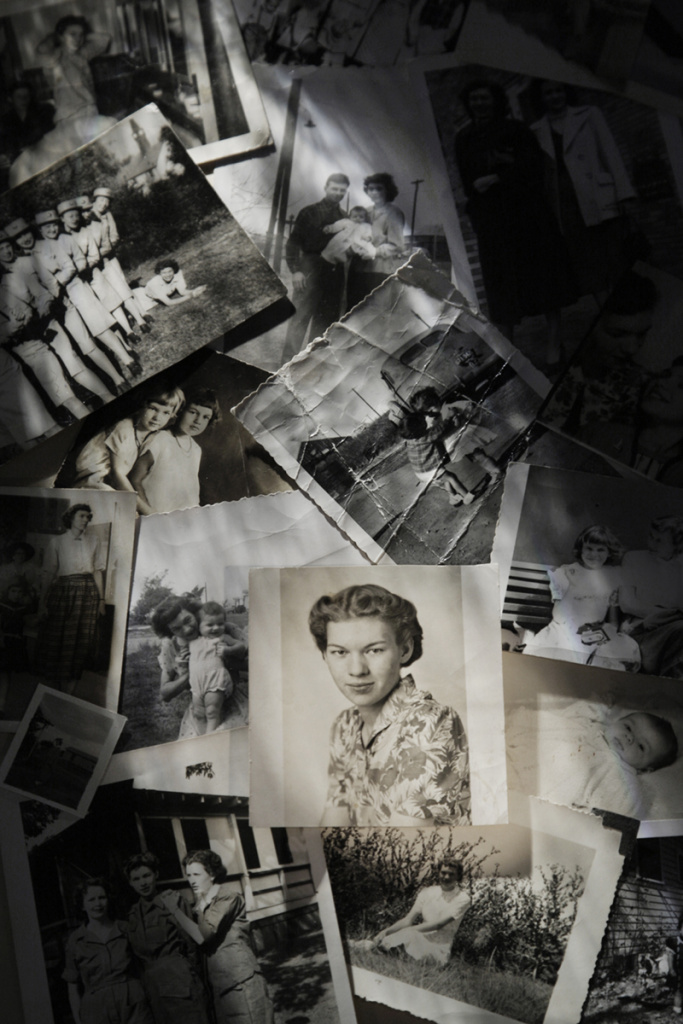
Madje Has Dementia by Maggie Steber (1): Collage of family photos of Madje Steber and daughter Maggie Steber at various times in their lives and before Madje was married. Center photo is Madje at 17 in high school in Electra, Texas.Madje Has Dementia by Maggie Steber: Collage of family photos of Madje Steber and daughter Maggie Steber at various times in their lives and before Madje was married. Center photo is Madje at 17 in high school in Electra, Texas.
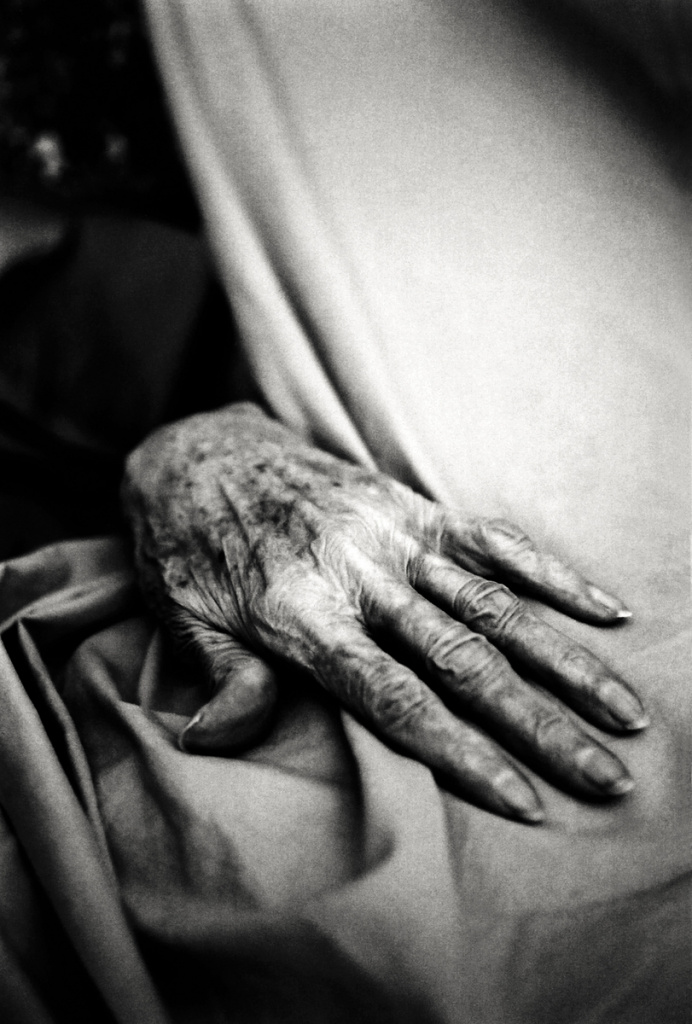
Madje Has Dementia by Maggie Steber (12): Madje’s Hand. A scientist who also played the violin, Madje’s hands were always intriguing. I photographed her hands all the time. The hand of Madje Steber lays across a sheet while she sleeps. Madje was a scientist but also played the violin and had the long thin agile fingers that facilitated her abilities with the stringed instrument. (I loved my mother's hands and photographed them often - daughter Maggie Steber).
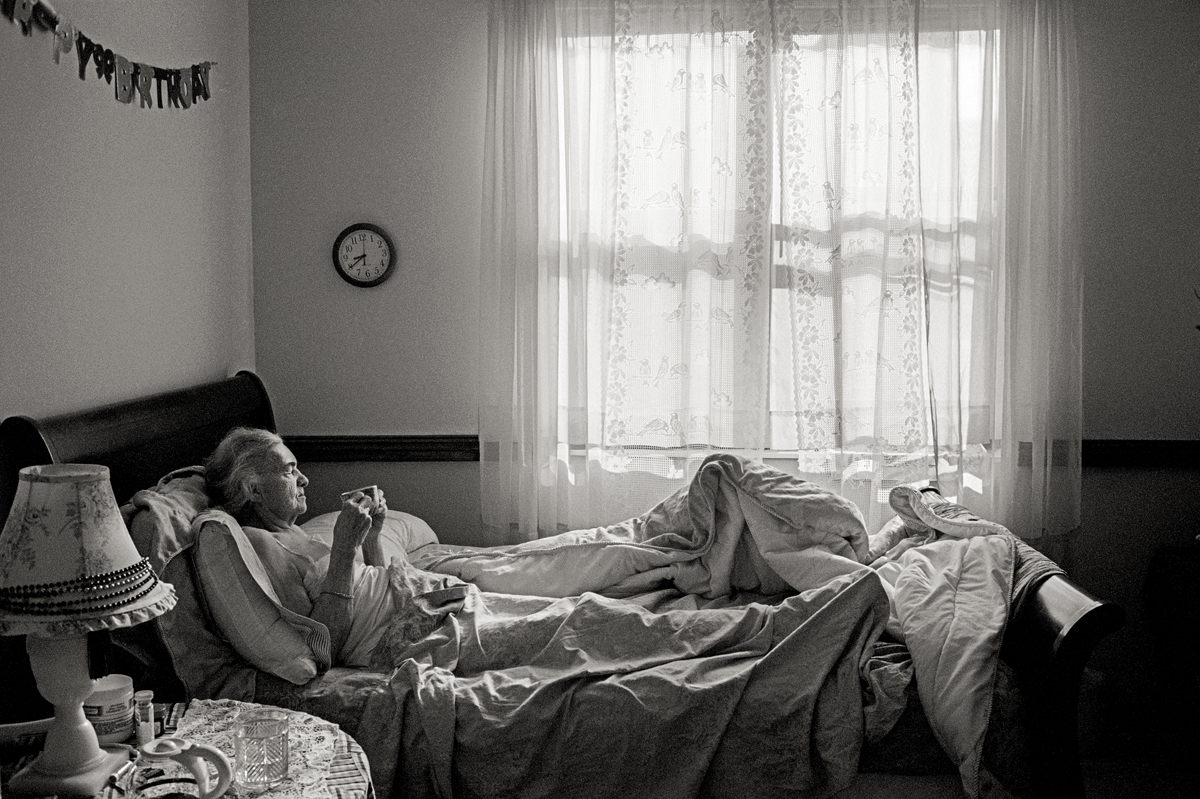
Madje Has Dementia by Maggie Steber (10): Breakfast in Bed. Madje rose everyday at 5am for decades. Now she can have breakfast in bed anytime she wants. The Romanian and Cuban caregivers spoil their residents with love, like family. Madje Steber enjoys breakfast in bed, a morning ritual that went toward spoiling her as part of her care at Midtown Manor Assisted Living Facility. As someone who worked up until the age of 72, daughter Maggie wanted her to be able to sleep late, eat breakfast whenever she wanted, and in general, be spoiled rotten, in the final years of her life as she suffered from the decline of dementia.

Madje Has Dementia by Maggie Steber (23): Madje with dark glasses: Madje Steber sits in the front lawn of Bay Oaks, an assisted living facility in the heart of Miami, Florida, after being moved there by her daughter when she could no longer live alone. Madje loved it and blossomed. There were little dogs and a few cats that lived there. She only stayed here for one year because she began to wander and had to move to Midtown Manor in Hollywood, Florida. COOL MADJE
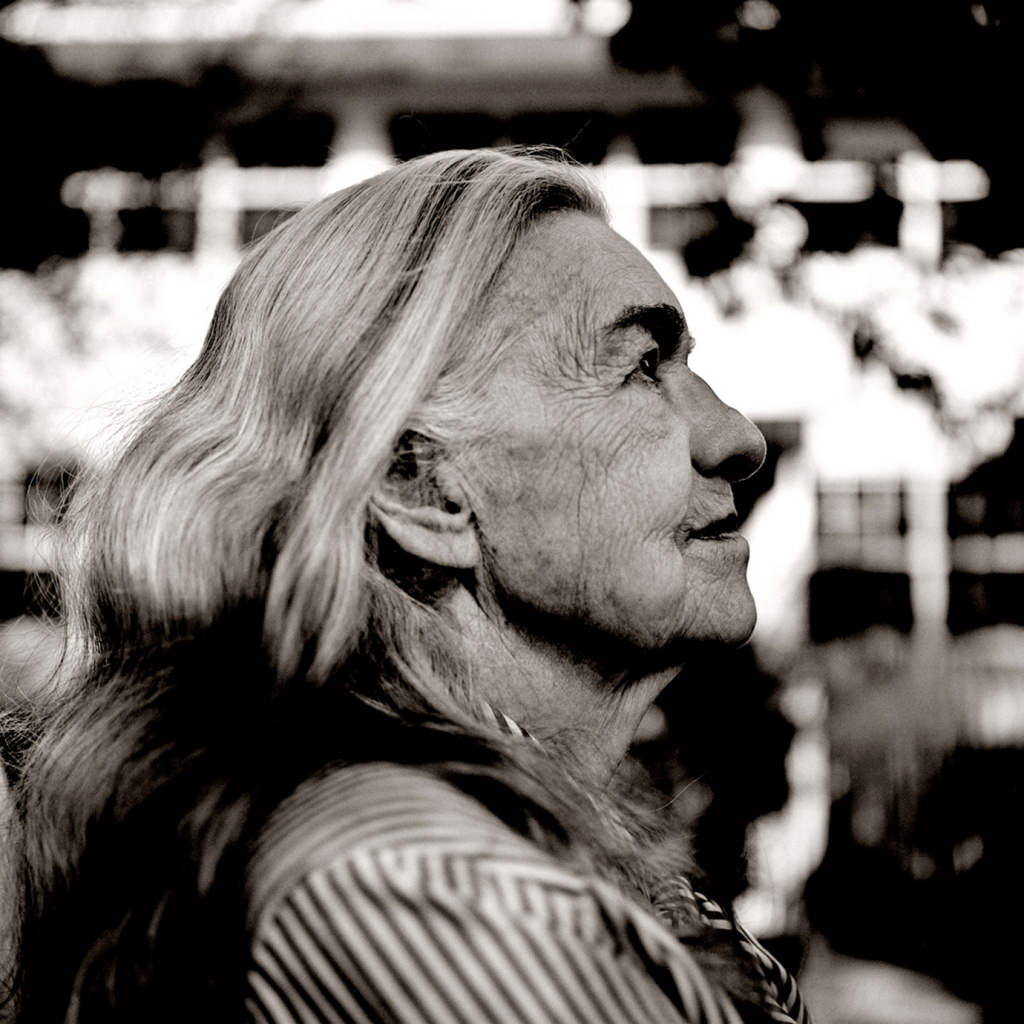
Madje Has Dementia by Maggie Steber (29): A few weeks after moving into Bay. Profile of a proud woman. Oaks Home for the Aged (assisted living facility) in Miami, Florida, she blossomed, came out of the shell she had crawled into for the past ten years and was happy. Madje, one half Cherokee Indian, was 85 at time. Her happy days ended one year later when she began to wander and her daughter had to find a new place for her to live that would be more secure.
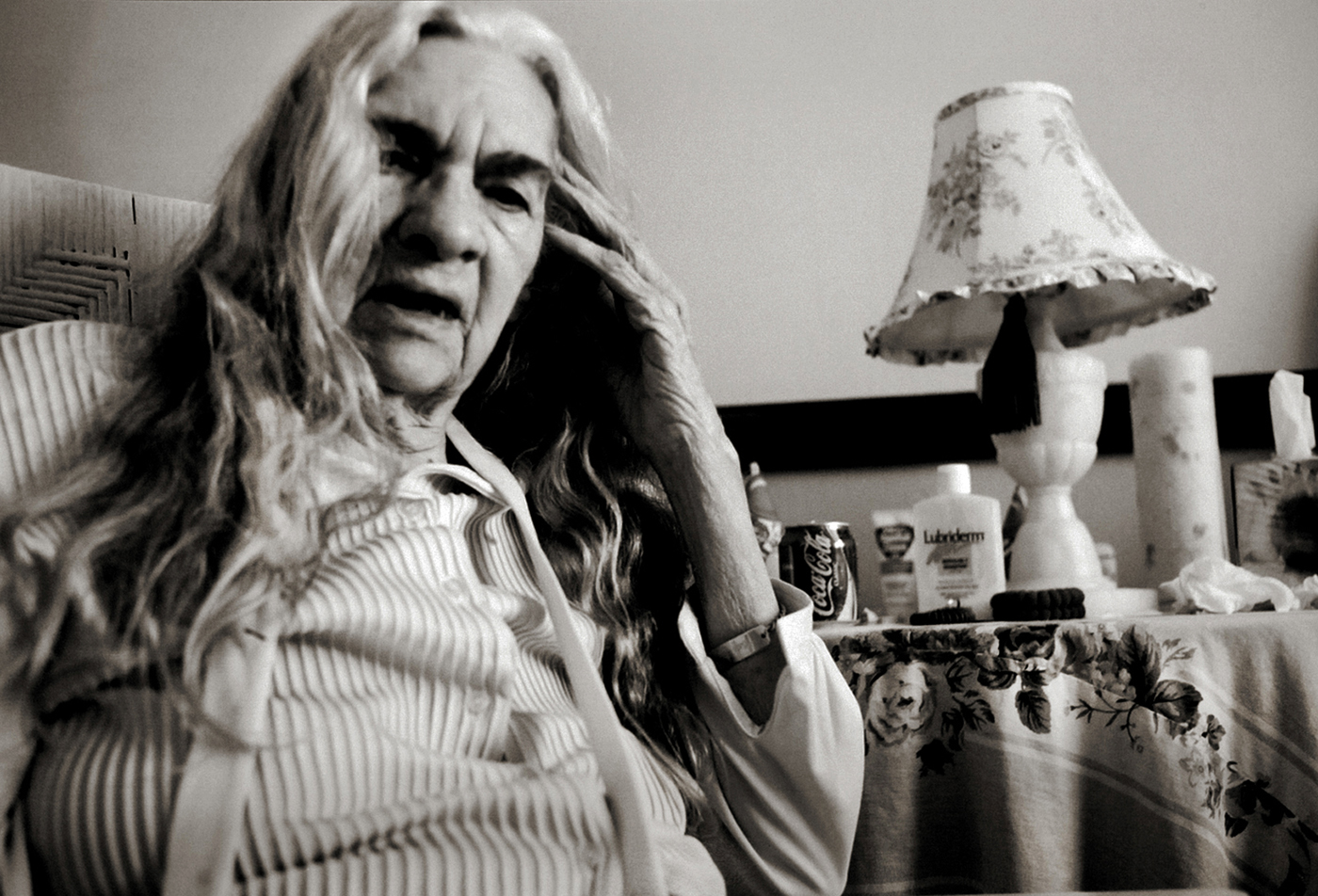
Madje Has Dementia by Maggie Steber (28): In a Bad Mood, Madje sits in her rocking chair in her room. Madje Steber, who suffers from memory loss, worries out loud about nothing in particular, mumbling after having breakfast in her private room at Midtown Manor assisted living facility in Hollywood, Florida.
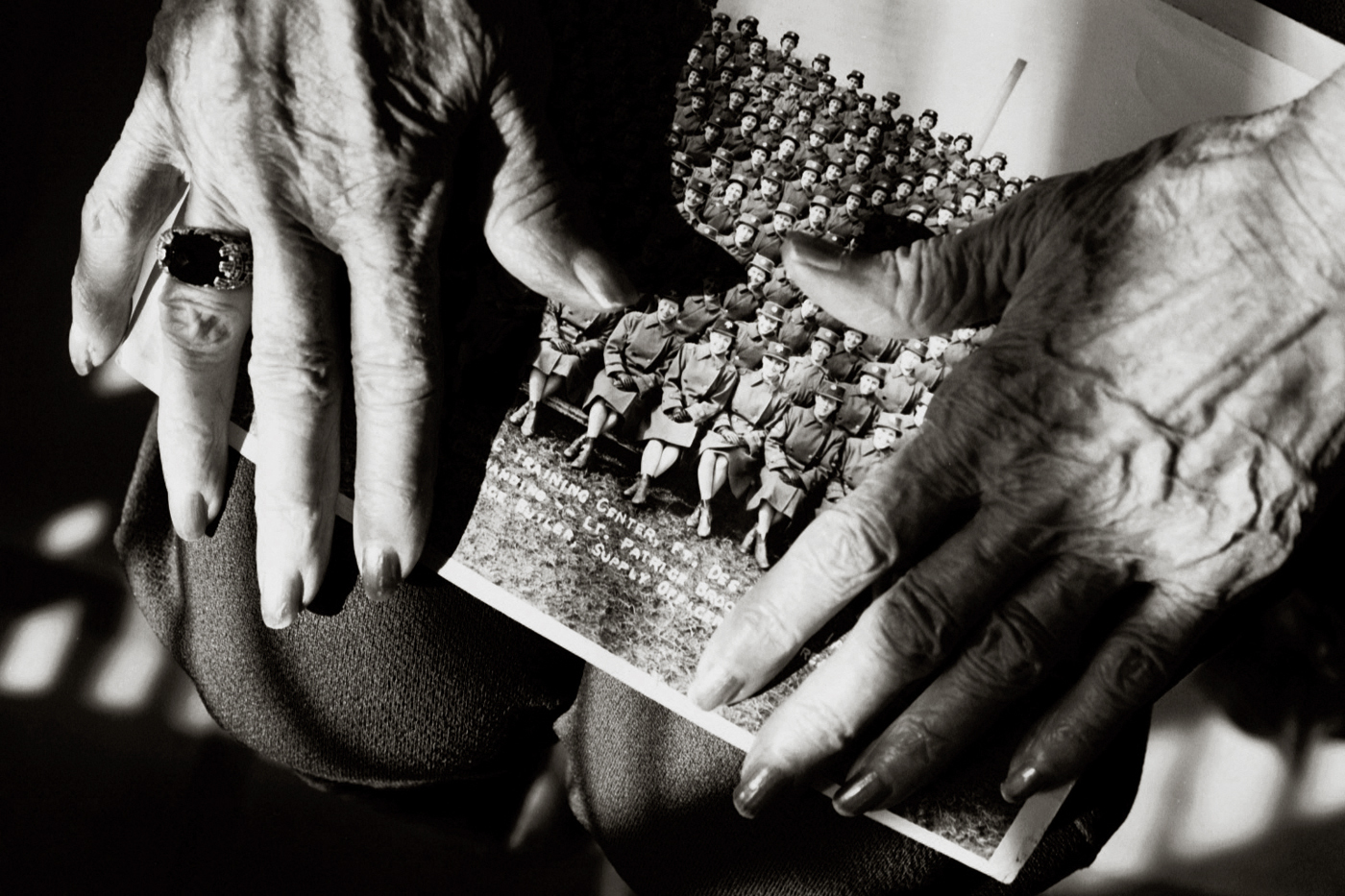
Madje Has Dementia by Maggie Steber (20): Hands on military women group shot: IN SERVICE TO HER COUNTRY: During WWII, Madje Steber joined the US Army and trained with the signal corps at an army camp in Iowa. She was sent to Washington, D.C. after training and decoded secret messages at the Pentagon. Her beautiful wrinkled hands frame the signal corps group, with Madje smiling at the very center. 2004.
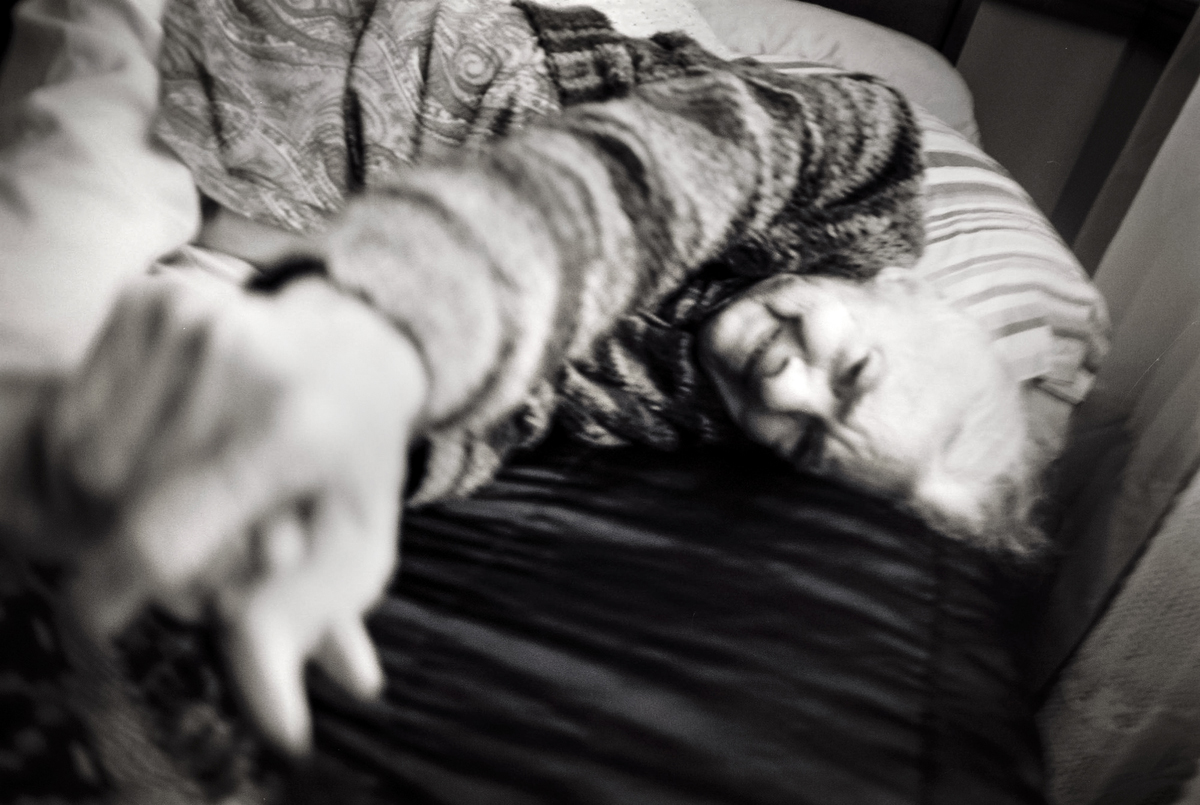
Madje Has Dementia by Maggie Steber (6): Bad Day for Madje, as she fights with everyone who comes near her. Suffering from dementia, Madje Steber had good days and bad ones. She went through stages of kicking, scratching, screaming, wandering, anger, fear, paranoia and gentle behavior, stages that all dementia victims suffer from and which pass.
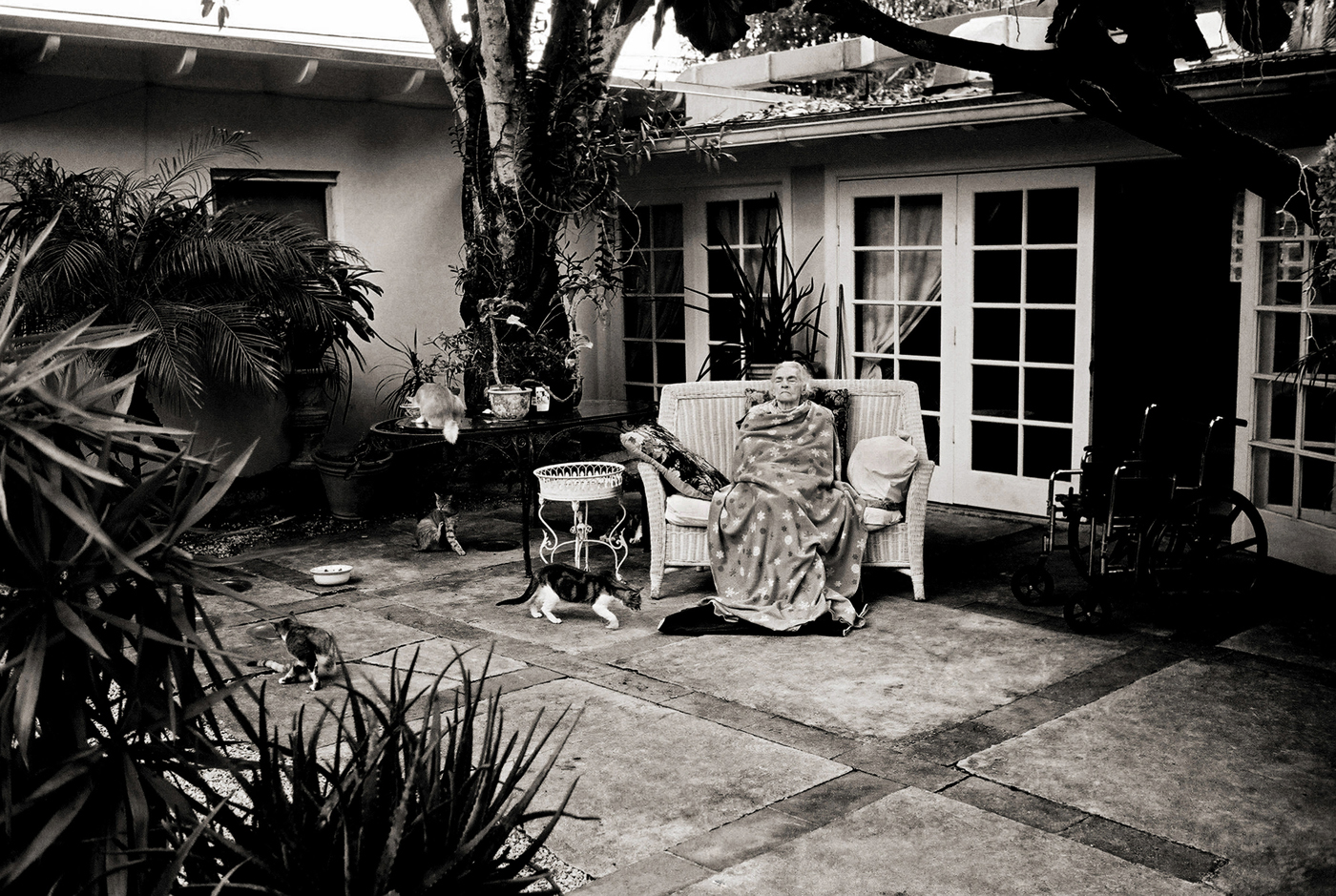
Madje Has Dementia by Maggie Steber (29): Madje Steber naps in the courtyard at her daughter, Maggie's, home in Miami, Florida. Maggie had to move Madje from the assisted living facility where she had lived for a year because she began to wander. Maggie looked at 50 facilities in a 3-county area and finally found Midtown Manor in Hollywood, Florida, about 30 minutes from Maggie's home. Things got better as they grew worse.
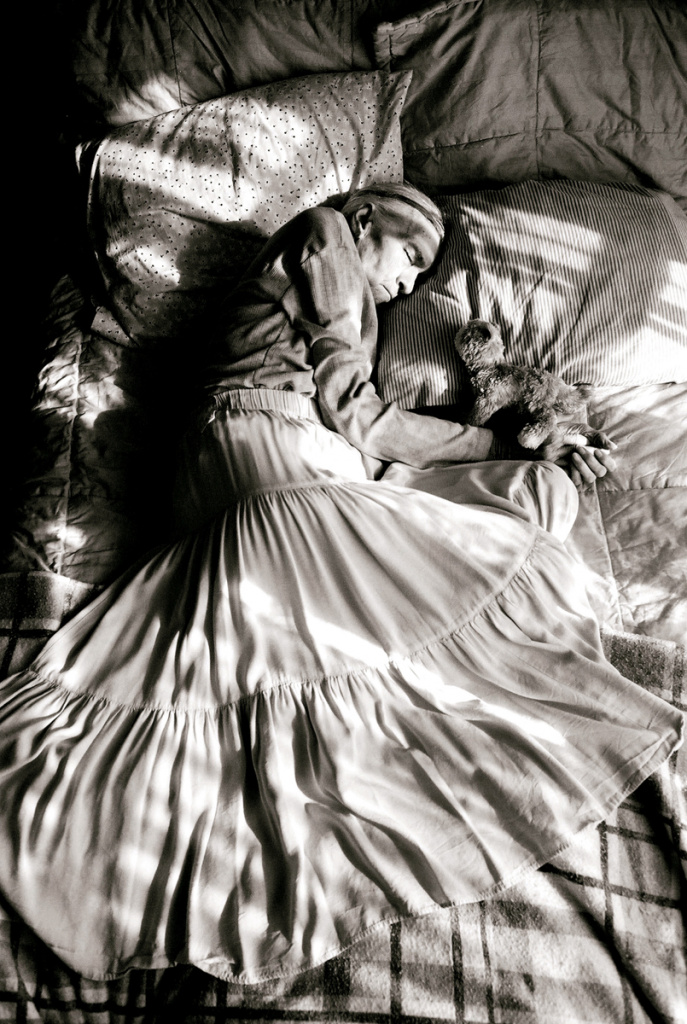
Madje Has Dementia by Maggie Steber (16): Sleeping Beauty: Madje takes an afternoon nap in her long skirt. She sleeps in her bed with her stuffed kitty at Midtown Manor, her home, in Hollywood in 2008. Dementia and the medications she takes to fight memory loss causes Madje to sleep most of the day and night.
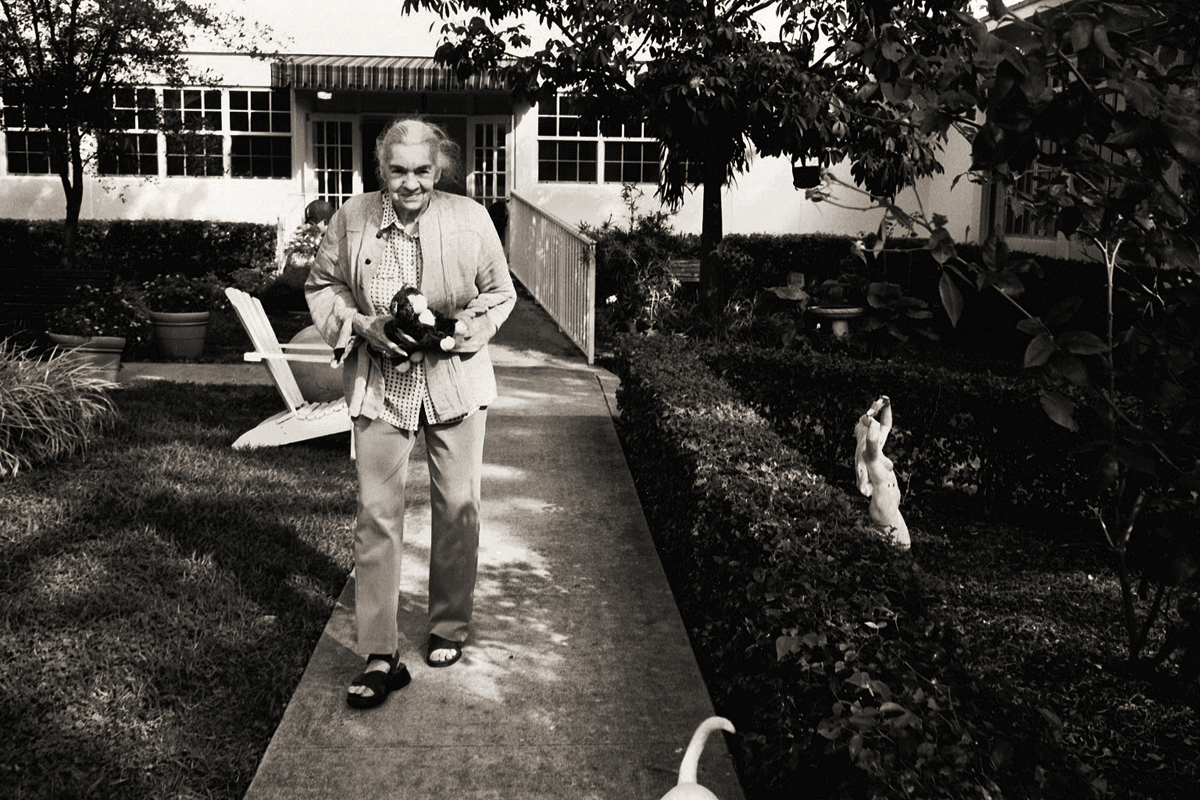
Madje Has Dementia by Maggie Steber (9): Going to Lunch. Madje at her new home Bay Oaks in Miami two weeks after arriving. She walks through the gardens of Bay Oaks home for the elderly in in Miami/Florida, on the way to lunch. She takes her stuffed kitty everywhere with her as she falls into the childlike stage of Dementia. Bay Oaks is the first place Madje went to live when she began to lose her memory. Though she fought the place at first, she grew to love it and even blossomed socially until she began to wander and had to move to a locked facility for her own safety.
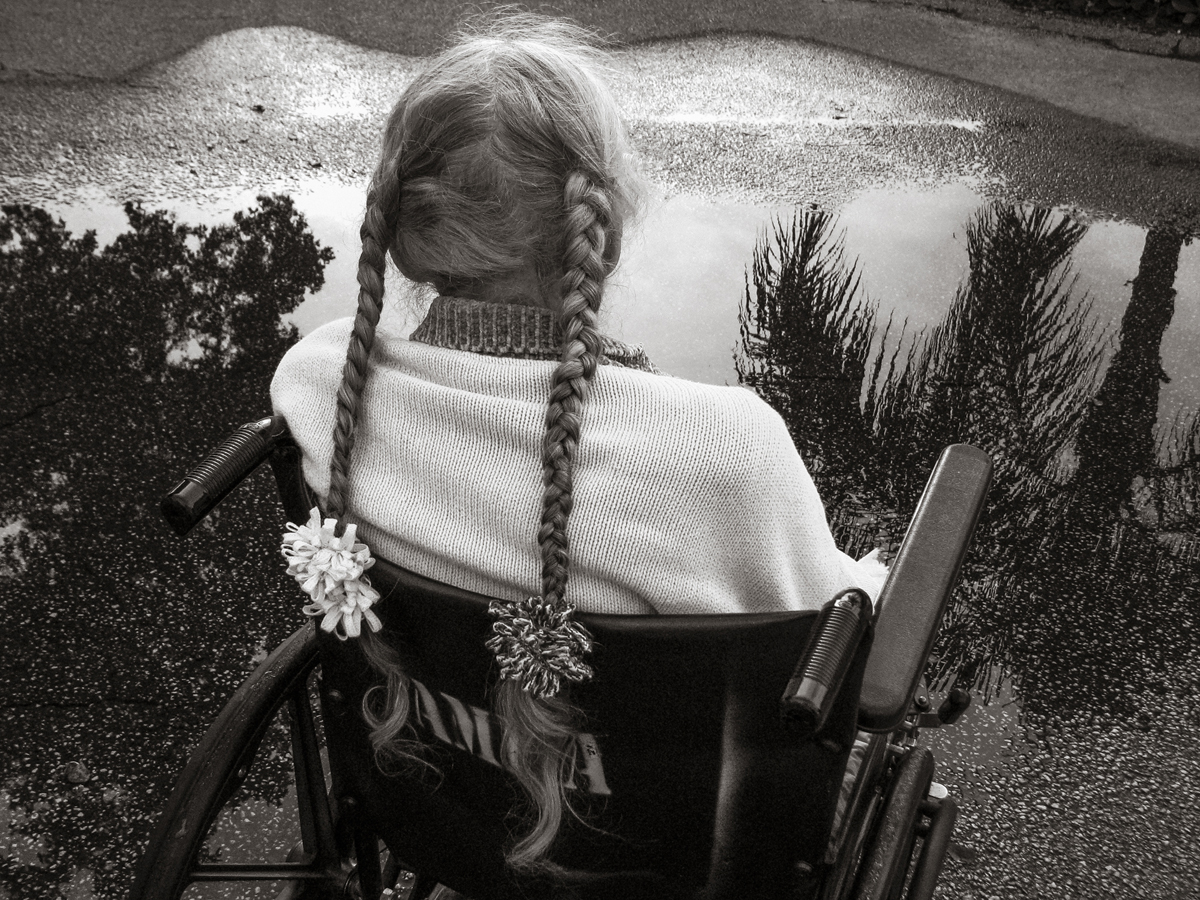
Madje Has Dementia by Maggie Steber (15): After a rain, Madje goes outside and stops at a puddle to stare for a long time. The puddle only had a few palm trees reflected at the sides and the rest was empty. It made me think her memory must be like this. In many ways because of dementia, she is part of that reflection, not quite here in the real world, not quite there in her own reflections.
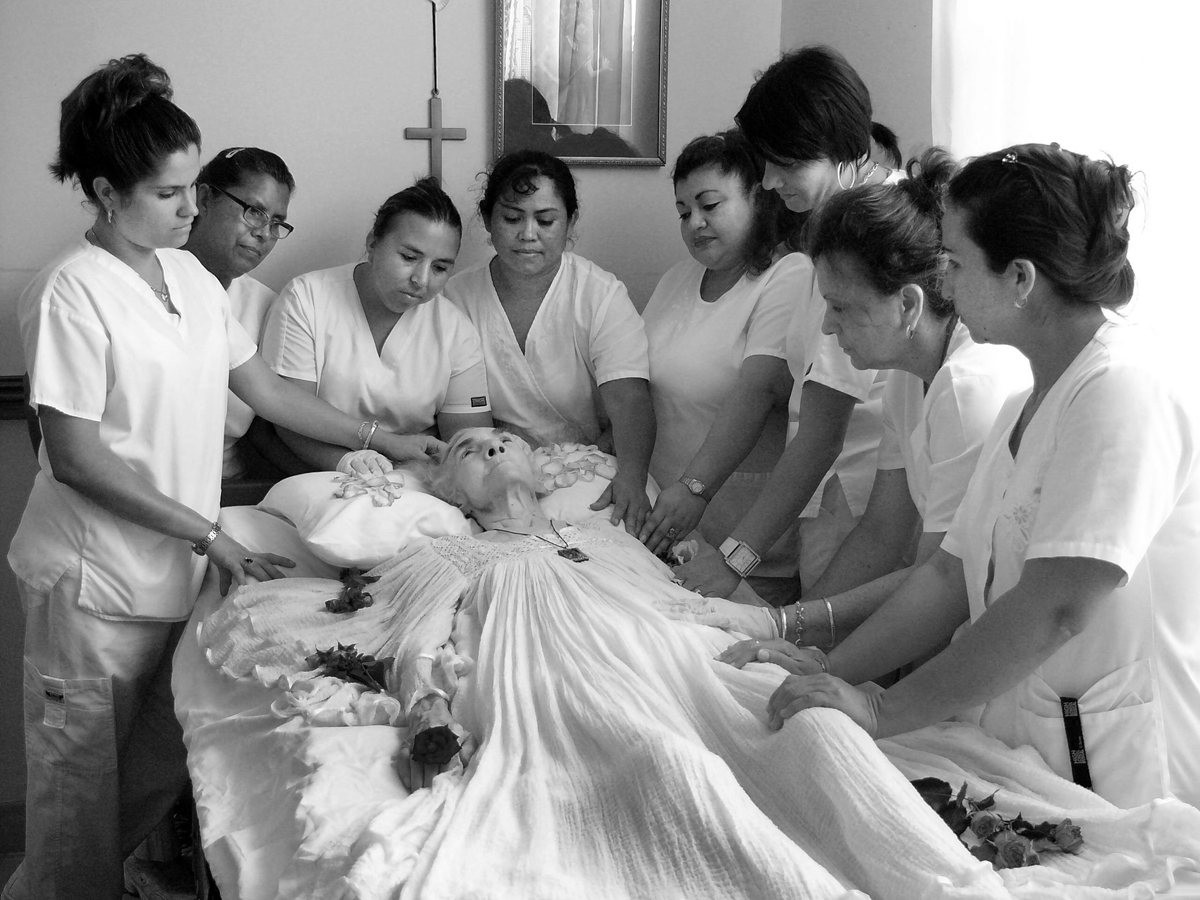
Madje Has Dementia by Maggie Steber (5): Madje Dies: Caregivers from her assisted living home gather around Madje Steber who died earlier that morning. Her daughter and a nurse washed her and dressed her, coming her long hair out and putting roses around her. This was her funeral before the cremation home came for her body.
"Over a lifetime we accumulate experiences that end up being like wallpaper in a house where our subconscious resides. While the photographs I take are not of me nor of my direct life, they are part of me because they show the human experience And that’s what interests me more than anything. I try to make photographs that look and feel like family photos because I try to make my subjects my family. Having grown up alone, raised by an eccentric brilliant scientist mother, my photos are the way I create a larger family and show their experiences. While I admire them from afar, I try very hard not to be influenced by trends or opinions. I just try to make honest photographs."
——Maggie Steber
Madje dies
Caregivers from her assisted living home gather around Madje Steber who died earlier that morning. Her daughter and a nurse washed her and dressed her, coming her long hair out and putting roses around her. This was her funeral before the cremation home came for her body.
About
Maggie Steber is a Guggenheim Grant Fellow and documentary photographer who has worked in 70 countries photographing stories concerning the human condition. She is a contributing photographer to National Geographic Magazine. In 2013 Steber was named as one of eleven Women of Vision by National Geographic Magazine. Besides her documentary work, her ongoing personal project is The Secret Garden of Lily LaPalma, supported by a generous two-year grant from the Guggenheim Foundation.
Her honors include Joseph A. Sprague Memorial Award in 2020 for commitment to the craft of visual journalism that advances the profession, the Pulitzer Prize Finalist 2019, the Lucie Award for Photojournalism 2019, the Leica Medal of Excellence, World Press Photo Foundation and Pictures of the Year Awards, the Medal of Honor for Distinguished Service to Journalism from the University of Missouri, the Alicia Patterson Grant, the Ernst Haas Grant, and a Knight Foundation Grant. Steber has worked in the small nation of Haiti for 30 years.
Aperture published her monograph on Haiti entitled DANCING ON FIRE. Her work is exhibited in dozens of festivals and galleries throughout the United States and overseas, Her photographs are included in the American Women Collection at the Library of Congress, the Guggenheim Foundation, and the Richter Library and many private collections. She is affiliated with VII Photo Agency and the National Foundation for Young Arts. She lives in Miami, Florida.
Visit Maggie Steber

At the 17th Annual Lucie Awards, Emeritus Member Maggie Steber was honored with a Lucie Award for her achievement in photojournalism at Carnegie Hall in New York City. The Lucie Awards is the premiere annual event honoring the greatest achievements in photography and is the signature program of the Lucie Foundation.
Press / Publications (Selection)
Audacity of Beauty
Being Reborn Through Photography, National Geographic Magazine
Women of Vision, National Geographic Magazine
Making Pictures In All Corners Of The World, NPR
Maggie Steber's best photograph: Hunger Overcomes Fear, The Guardian
Rite of Passage, Mediastorm
Madje Has Dementia, AARP Bulletin
No End of Trouble. Ever, New York Times
A Culture in Jeopardy, Too, New York Times
Scenes from a Ruined Boulevard, Haiti, New York Times
SLEEP, National Geographic Magazine
Honors & Awards
2019 Lucie Award Honoree: Achievement in Photojournalism
2019 Pulitzer Prize Finalist for The Story of a Face, National Geographic Magazine
2019 The Photographer’s Photographer Award from National Geographic Magazine
2019 The President’s Award from the Overseas Press Club
2017-2018 Guggenheim Foundation Fellow
2015 National Geographic Magazine Woman of Vision
2007 Knight Foundation grant for New American Newspaper Project
2003 Medal of Honor for Contribution to Journalism, University of Missouri
2001 Pulitzer Prize for Miami Herald coverage of Elian Gonzalez story
1987 First Prize Spot News World Press Photo Foundation for Haiti
1988 The Leica Medal of Excellence.Norwegian
1988 Olivier Rebbot Award from the Overseas Press Club
1988 Recipient Alicia Patterson Foundation Grant
1987 Recipient Ernst Haas Photography Grant
Our online magazine is free of advertisements. We do everything out of love and dedication. We are not profit oriented. Support Tagree that the magazine remains ad-free and the monthly costs can be paid. TAGREE, I love your cultural work, I donate to show you my appreciation, voluntary, one-time or regular monthly or per quarter:


